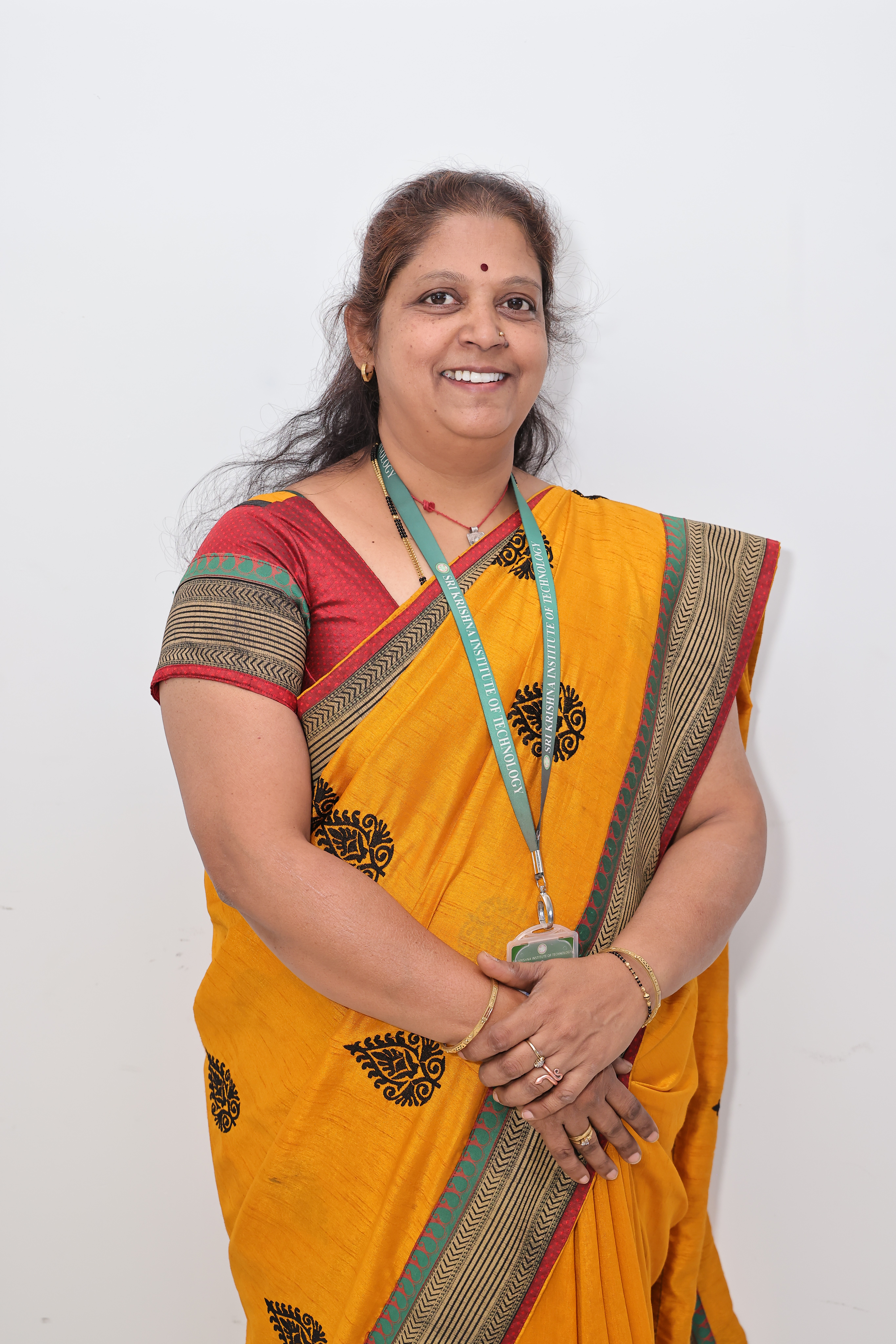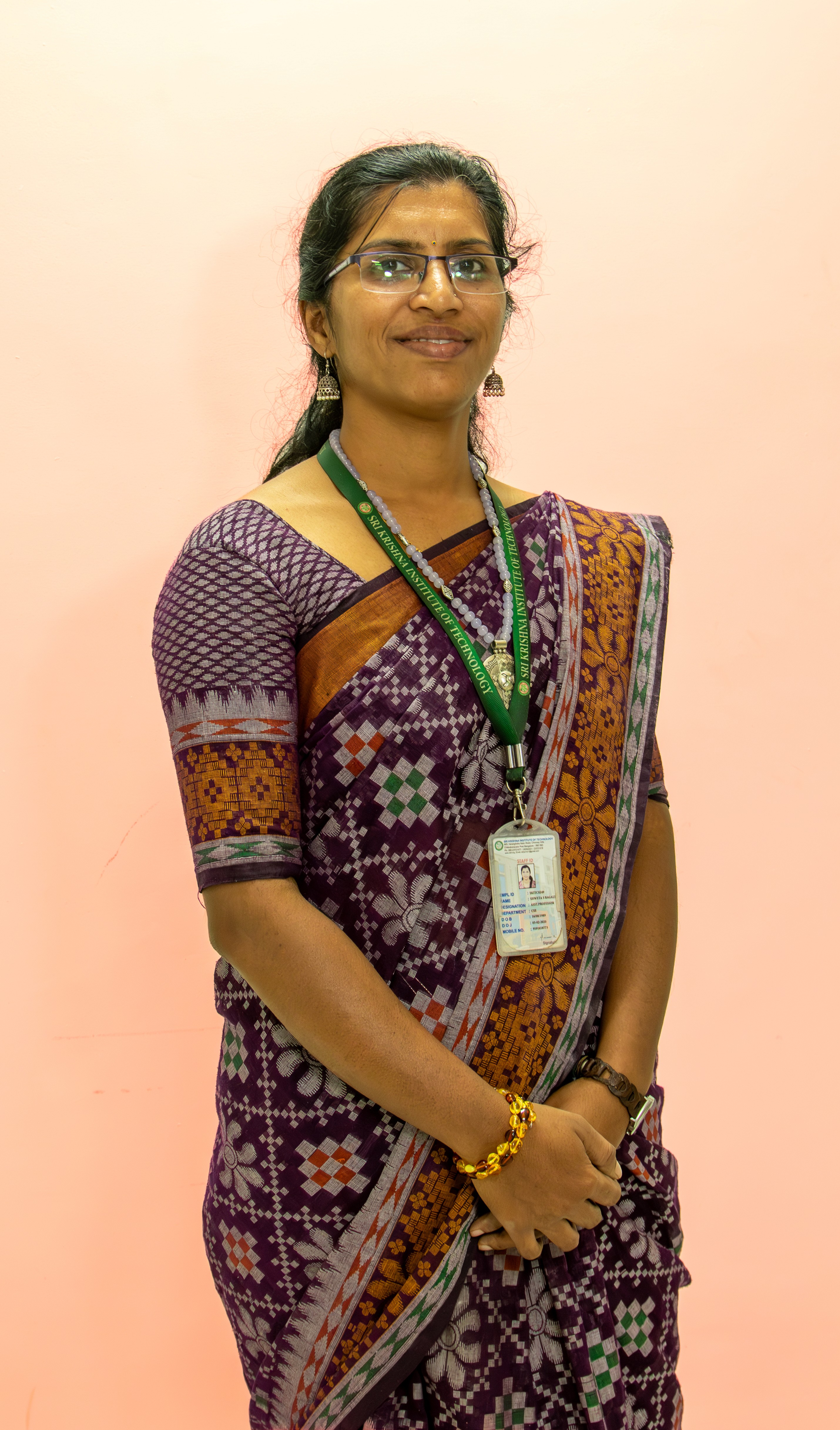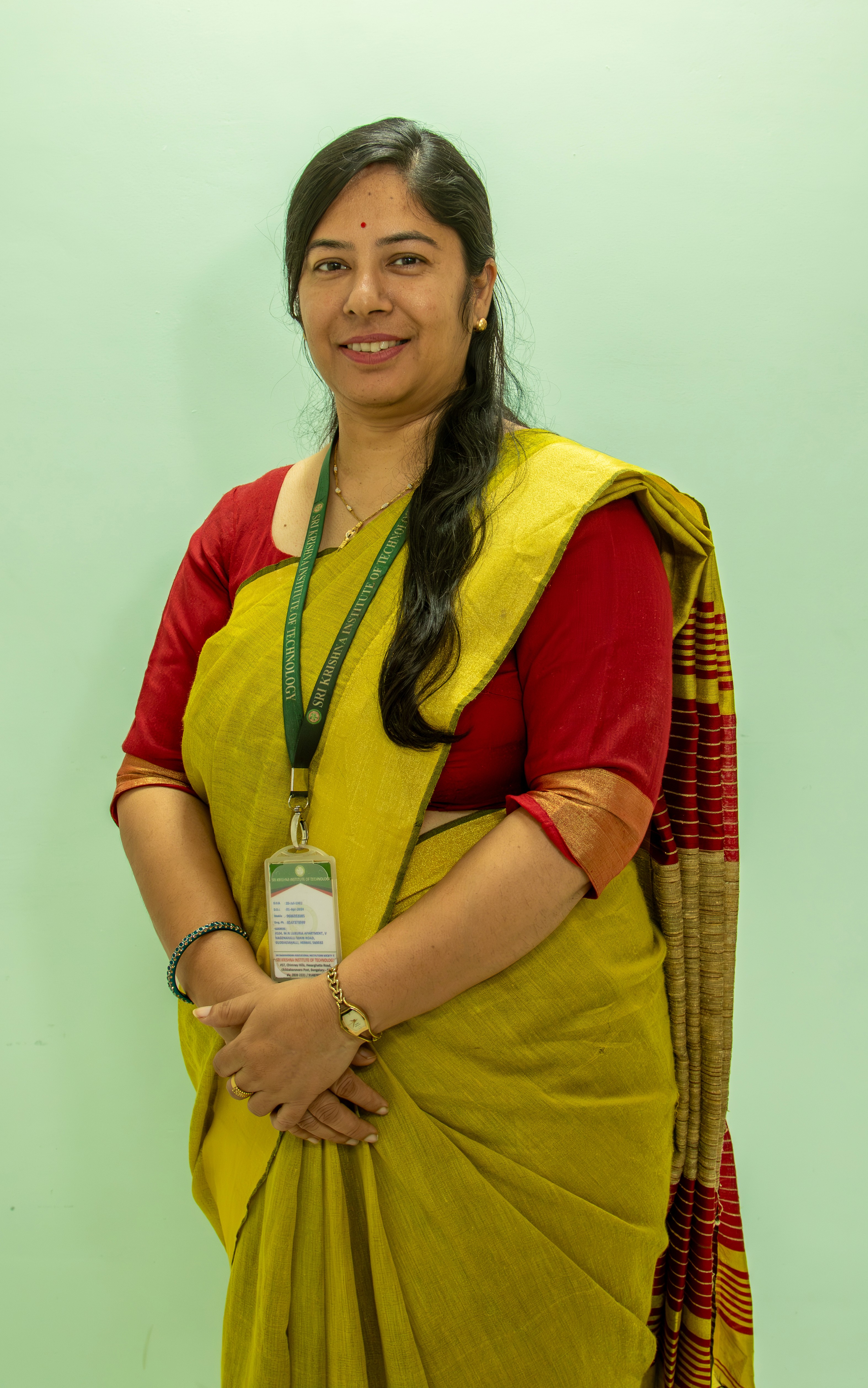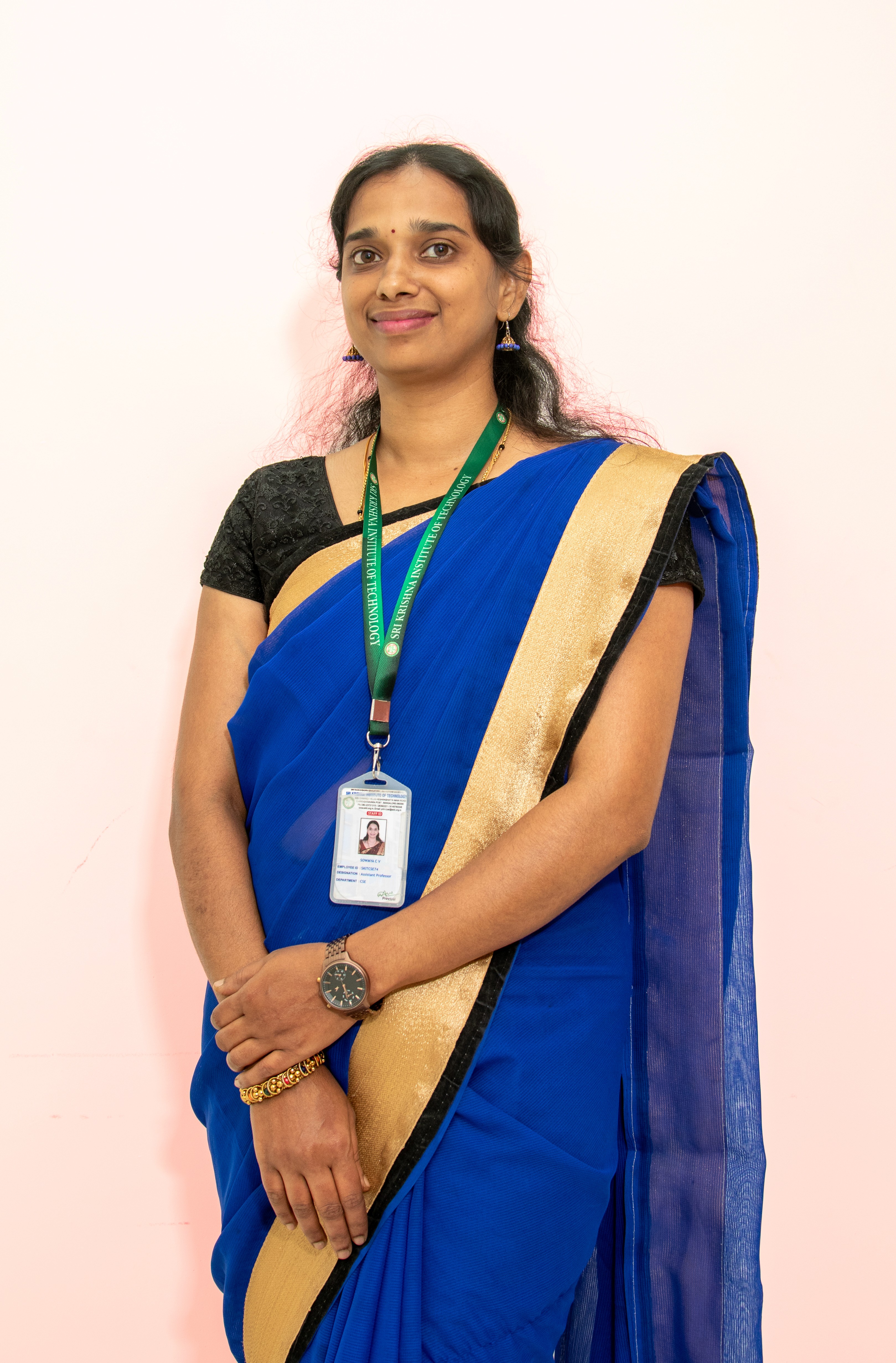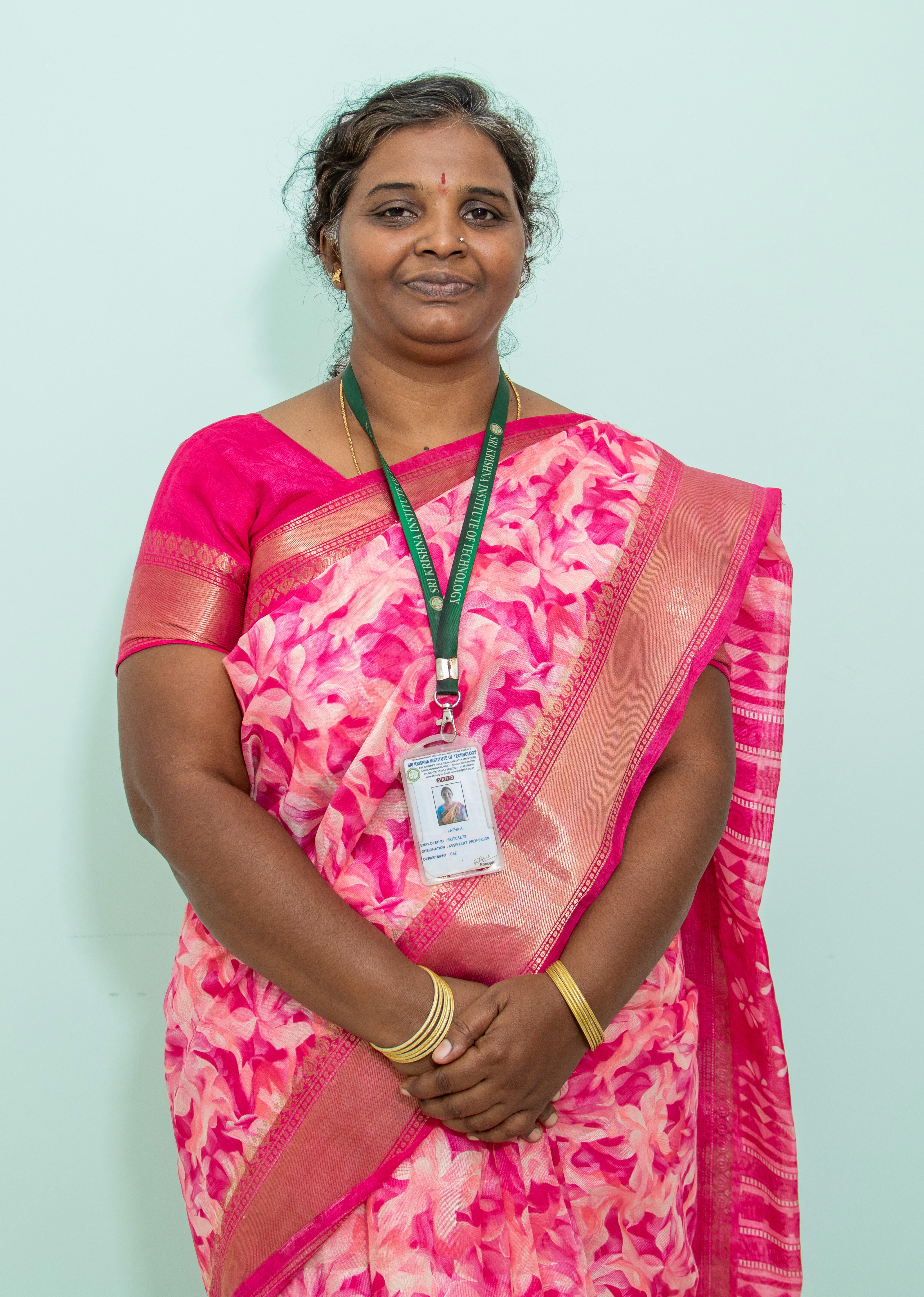Department of Computer Science & Engineering
Department of Computer Science & Engineering
At SKIT, you don’t just learn code you learn to create. With hands-on projects, modern labs, and real-world exposure, we prepare you to solve problems that matter.
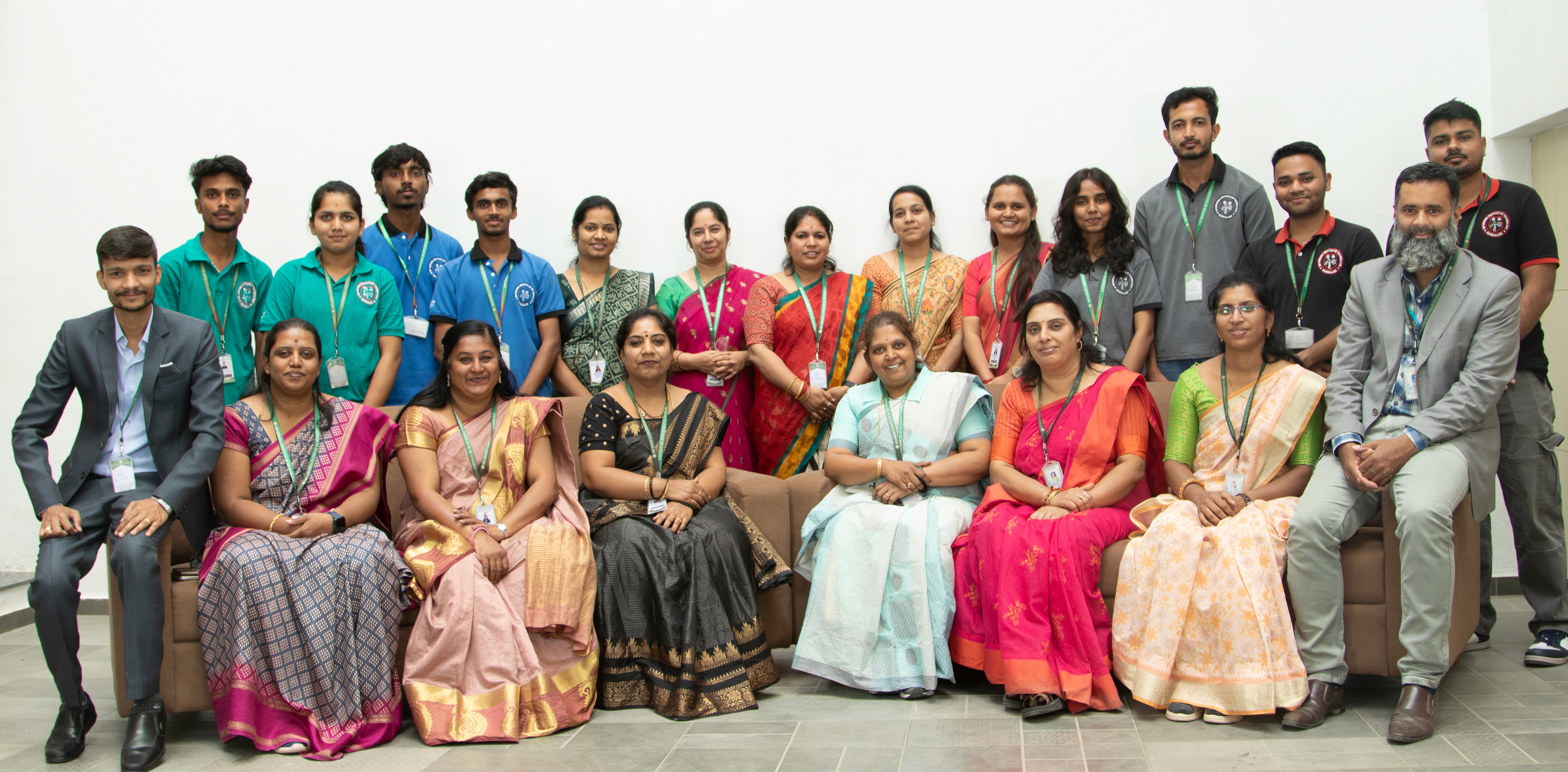
Hired by the Best in Tech
Hired by the Best in Tech

Since 2004, the Computer Science & Engineering Department has focused on strong programming fundamentals, system thinking, and real world software development. With hands on projects, industry exposure, and continuous upskilling, we prepare students to build scalable technology for the digital world.

Our Vision
Empowering Through Education
To be in the frontier of Computer Science & Engineering and to create Technically competent graduates with ethical, moral values committed to meet Industry and Societal needs.
Our Mission
• To produce ethical, motivated and skilled engineers through strong theoretical knowledge and practical application
• To inculcate problem solving and team building skills while promoting lifelong learning with a sense of societal responsibility
• To create a functional environment that supports research, consultancy and entrepreneurship

Since 2004, the Computer Science & Engineering Department has focused on strong programming fundamentals, system thinking, and real world software development. With hands on projects, industry exposure, and continuous upskilling, we prepare students to build scalable technology for the digital world.


Our Vision
Empowering Through Education
To produce ethical, motivated, and skilled computer engineers through strong theoretical foundations and practical application, while nurturing problem solving ability, teamwork, lifelong learning, and a sense of responsibility toward society.
Our Mission
To be at the forefront of Computer Science and Engineering by creating technically competent graduates with strong ethical values who can meet industry demands and societal needs.

Since 2004, the Computer Science & Engineering Department has focused on strong programming fundamentals, system thinking, and real world software development. With hands on projects, industry exposure, and continuous upskilling, we prepare students to build scalable technology for the digital world.


Our Vision
Empowering Through Education
To produce ethical, motivated, and skilled computer engineers through strong theoretical foundations and practical application, while nurturing problem solving ability, teamwork, lifelong learning, and a sense of responsibility toward society.
Our Mission
To be at the forefront of Computer Science and Engineering by creating technically competent graduates with strong ethical values who can meet industry demands and societal needs.
Message of Assurance
Message of Assurance
Message From The Head of Department
Message From The Head of Department
Head of Department
Head of Department
At SKIT, Computer Science Engineering builds thinkers, innovators, and problem-solvers. We focus on strong fundamentals, hands-on projects, and industry-aligned learning helping students grow into confident professionals ready for the tech world.
Dr. Hemalatha K. L
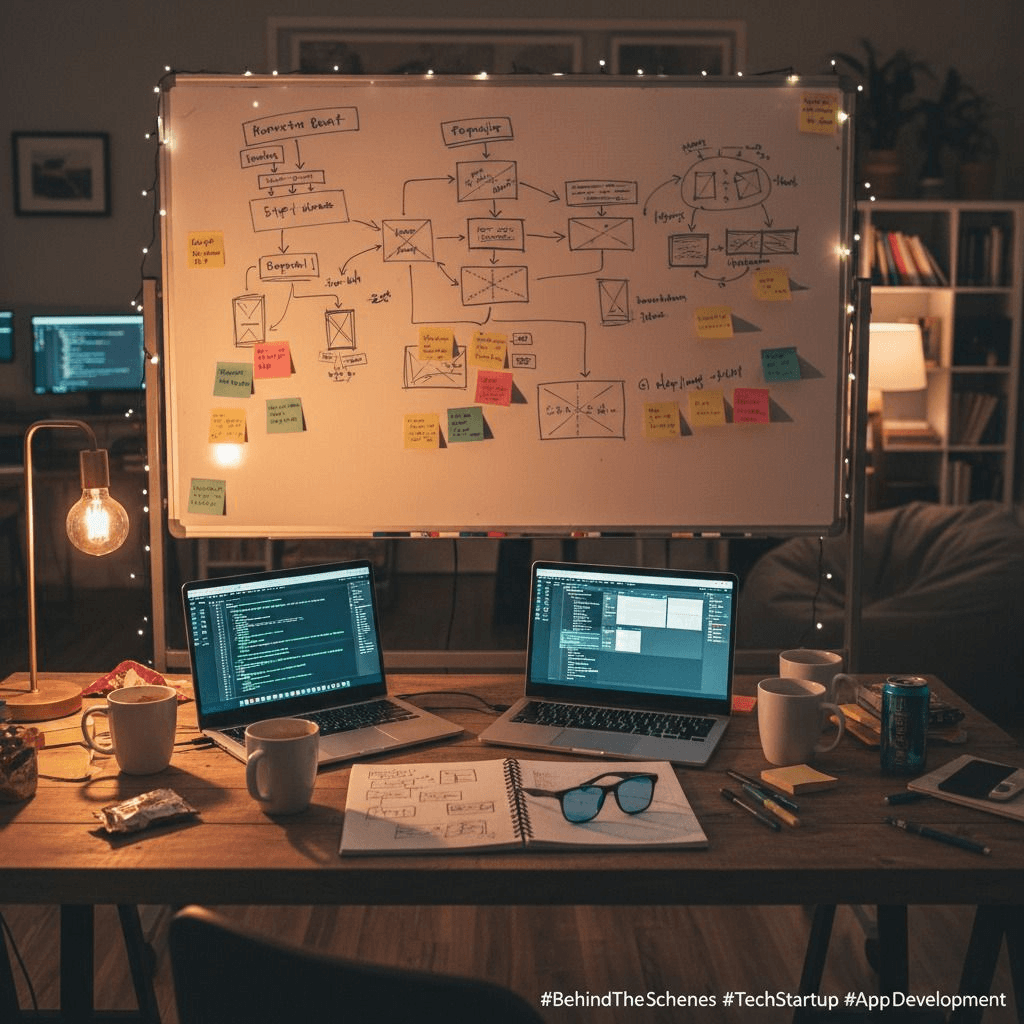
Why Computer Science & Engineering at SKIT?
CSE at SKIT is for students who want to build systems that scale beyond classrooms. You learn how software actually works… not just how to code it. With strong fundamentals, real world projects, and industry exposure, you graduate ready to solve problems that companies actually pay for.
Engineering Ideas into Impact
At SKIT, CSE is taught with a focus on fundamentals first and applications next. Students spend more time building, testing, and fixing systems than memorizing theory. The goal is simple… make you employable, adaptable, and technically confident by graduation.
Engineering Ideas into Impact
At SKIT, CSE is taught with a focus on fundamentals first and applications next. Students spend more time building, testing, and fixing systems than memorizing theory. The goal is simple… make you employable, adaptable, and technically confident by graduation.
Build What Matters
Learn to create technology that solves real problems. From small projects to big ideas, every task helps you grow into a confident engineer.
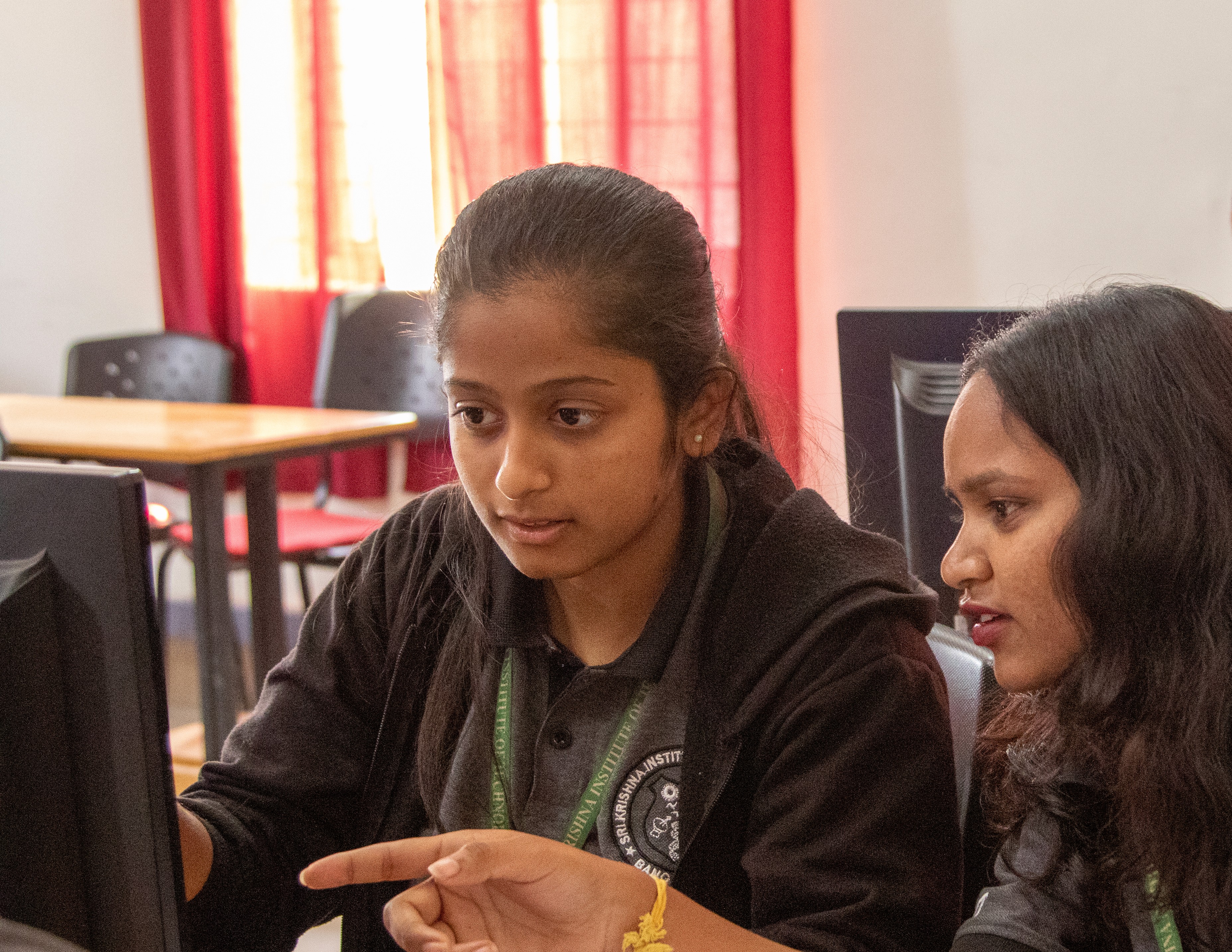
Build What Matters
Learn to create technology that solves real problems. From small projects to big ideas, every task helps you grow into a confident engineer.

Learn by Doing
You won’t just study concepts you’ll apply them. Every lab session, coding challenge, and group project builds real-world experience.

Learn by Doing
You won’t just study concepts you’ll apply them. Every lab session, coding challenge, and group project builds real-world experience.

Achievements
Recognitions and milestones across academics, research, and innovation.
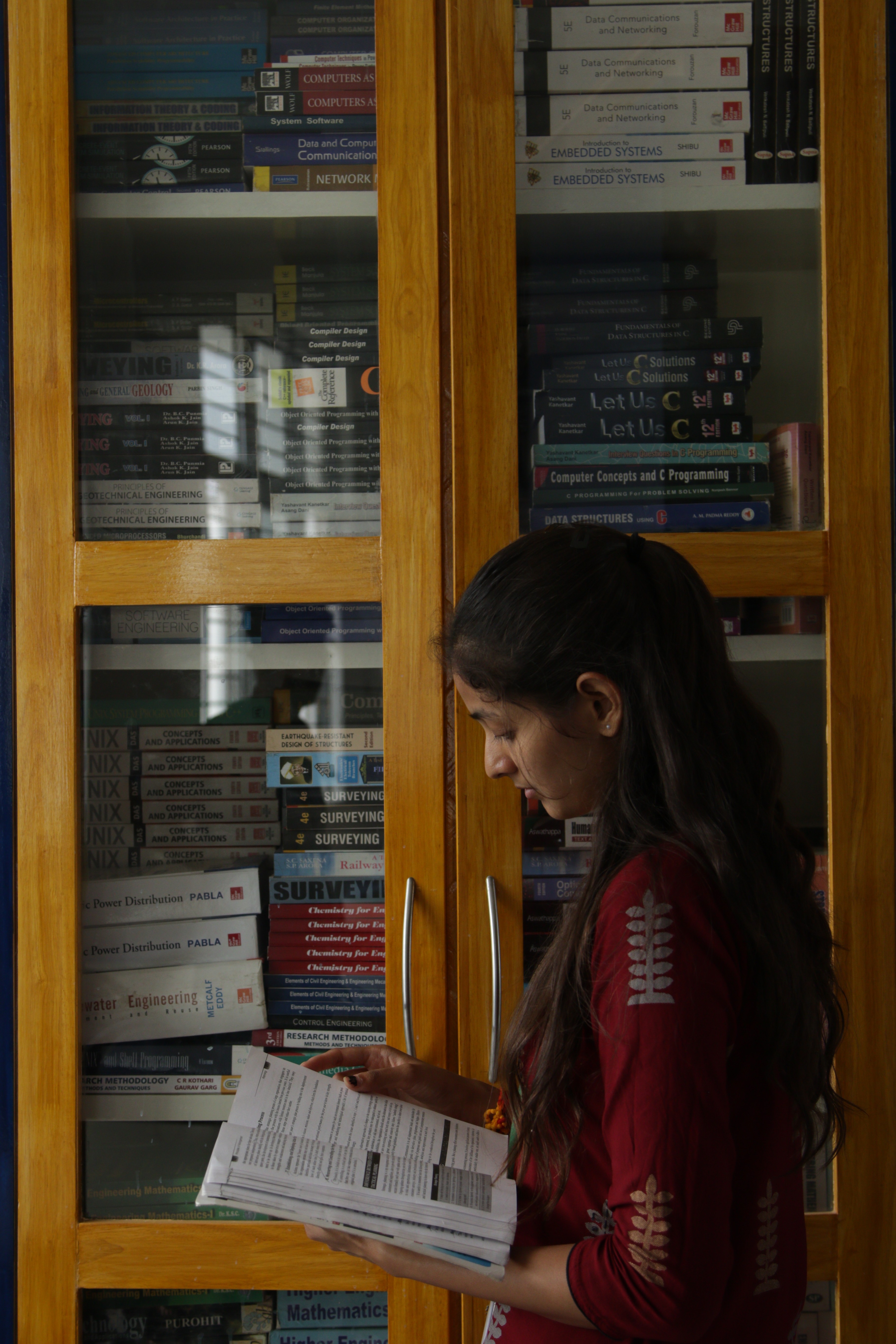
Achievements
Recognitions and milestones across academics, research, and innovation.

Here's Who You'll Be Learning From
Load More
Department Achievements
Sunanda C Pujari from CSE Placed at Spektra System India
The Department of Computer Science and Engineering congratulates Sunanda C Pujari on securing a placement at Spektra System India. Her achievement highlights the department’s emphasis on practical skills and industry preparedness.

Computer Science Engineering
Ashish Revankar from CSE Placed at HiveMinds Innovative Market Solutions Pvt Ltd
The Department of Computer Science and Engineering congratulates Ashish Revankar on securing a placement at HiveMinds Innovative Market Solutions Pvt Ltd. His achievement reflects strong technical preparation and industry readiness developed through the department’s academic and practical training.

Computer Science Engineering
Aniketh Singh Dhankar from CSE Placed at e2e Rosh IT Solutions India Pvt Ltd
The Department of Computer Science and Engineering congratulates Aniketh Singh Dhankar on securing a placement at e2e Rosh IT Solutions India Pvt Ltd. His accomplishment reflects consistent academic performance and strong technical capability.

Computer Science Engineering
Aditya Raj from CSE Placed at Gisul Software Services Pvt Ltd
The Department of Computer Science and Engineering congratulates Aditya Raj on securing a placement at Gisul Software Services Pvt Ltd. His success reflects consistent academic performance and strong technical capabilities fostered by the department.

Computer Science Engineering
Akshata Lenkappa Walikar from CSE Placed at Spektra System India
The Department of Computer Science and Engineering congratulates Akshata Lenkappa Walikar on securing a placement at Spektra System India. Her success reflects consistent academic effort and strong technical capability nurtured by the department.

Computer Science Engineering
Ashish Revankar from CSE Placed at HiveMinds Innovative Market Solutions Pvt Ltd
The Department of Computer Science and Engineering congratulates Ashish Revankar on securing a placement at HiveMinds Innovative Market Solutions Pvt Ltd. His achievement reflects strong technical preparation and industry readiness developed through the department’s academic and practical training.

Computer Science Engineering
Aditya Raj from CSE Placed at Gisul Software Services Pvt Ltd
The Department of Computer Science and Engineering congratulates Aditya Raj on securing a placement at Gisul Software Services Pvt Ltd. His success reflects consistent academic performance and strong technical capabilities fostered by the department.

Computer Science Engineering
Sunanda C Pujari from CSE Placed at Spektra System India
The Department of Computer Science and Engineering congratulates Sunanda C Pujari on securing a placement at Spektra System India. Her achievement highlights the department’s emphasis on practical skills and industry preparedness.

Computer Science Engineering
Aniketh Singh Dhankar from CSE Placed at e2e Rosh IT Solutions India Pvt Ltd
The Department of Computer Science and Engineering congratulates Aniketh Singh Dhankar on securing a placement at e2e Rosh IT Solutions India Pvt Ltd. His accomplishment reflects consistent academic performance and strong technical capability.

Computer Science Engineering
Akshata Lenkappa Walikar from CSE Placed at Spektra System India
The Department of Computer Science and Engineering congratulates Akshata Lenkappa Walikar on securing a placement at Spektra System India. Her success reflects consistent academic effort and strong technical capability nurtured by the department.

Computer Science Engineering
Aditya Raj from CSE Placed at Gisul Software Services Pvt Ltd
The Department of Computer Science and Engineering congratulates Aditya Raj on securing a placement at Gisul Software Services Pvt Ltd. His success reflects consistent academic performance and strong technical capabilities fostered by the department.

Computer Science Engineering
Aniketh Singh Dhankar from CSE Placed at e2e Rosh IT Solutions India Pvt Ltd
The Department of Computer Science and Engineering congratulates Aniketh Singh Dhankar on securing a placement at e2e Rosh IT Solutions India Pvt Ltd. His accomplishment reflects consistent academic performance and strong technical capability.

Computer Science Engineering
Ashish Revankar from CSE Placed at HiveMinds Innovative Market Solutions Pvt Ltd
The Department of Computer Science and Engineering congratulates Ashish Revankar on securing a placement at HiveMinds Innovative Market Solutions Pvt Ltd. His achievement reflects strong technical preparation and industry readiness developed through the department’s academic and practical training.

Computer Science Engineering
Sunanda C Pujari from CSE Placed at Spektra System India
The Department of Computer Science and Engineering congratulates Sunanda C Pujari on securing a placement at Spektra System India. Her achievement highlights the department’s emphasis on practical skills and industry preparedness.

Computer Science Engineering
Akshata Lenkappa Walikar from CSE Placed at Spektra System India
The Department of Computer Science and Engineering congratulates Akshata Lenkappa Walikar on securing a placement at Spektra System India. Her success reflects consistent academic effort and strong technical capability nurtured by the department.

Computer Science Engineering
Lets
Engineer
Innovate
Transform
Possibilities Together.


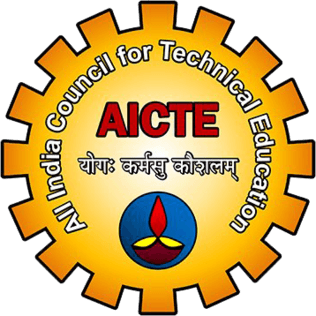

Quick links
Engineering Programs
Mandatory Committees
Contact
Social
Admissions
Lets
Engineer
Innovate
transform
Possibilities Together.




Quick links
Engineering Programs
Contact
Social
Admissions
Lets
Engineer
Innovate
Transform
Possibilities Together.




Quick links
Engineering Programs






